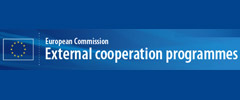WECF in Sochi: Sports for a healthy environment and equal rights
WECF International Director spoke at International Olympic Committee conference in Sochi, Russia, on sports, environment and equal rights
03.11.2013 |WICF

Early 20th century: women who were not allowed to vote or study, but founded the first women's hockey club in the Netherlands
Despite the title of the conference, at the time the conference took place there was much criticism and tension related to the environmental problems of the Sochi games, as well as to the imprisoned Greenpeace activists - who were asking attention for the environmental protection of the Arctic Sea, – as to the new legislation against gay and lesbians in Russia.
Priorities of Women's and Environment Movements
WECF director Sascha Gabizon was invited to speak alongside well-known olympic champions to present the priorities of the women's and environment movements.
Sascha Gabizon spoke on the "Sustainable Development Goals" which are being negotiated by governments worldwide in the framework of the implementation of the Rio+20 commitments. In her presentation Ms Gabizon highlighted that despite the Millennium Development Goals and an average 100 billion US Dollars annual investment in development cooperation, poverty continues to increase, including in middle income countries. Women are the majority of the poor, in least developed as well as industrialized countries. To sustainably eliminate poverty, policies and regulation need to address the root causes of inequality. Communities living in poverty are most severely impacted by environmental destruction and pollution, as they depend for their survival on nature; fishing, farming, gathering fruits and nuts etc.
Sports for equal rights
Ms Gabizon gave examples of policies and best practices which reduce inequalities and increase wellbeing without destroying our natural environment. She called for equal opportunities for women in sustainable development, for women economic and political empowerment. Giving the example of her great-grandmother, - who was not allowed to vote or study - but who founded the first women's hockey club in the Netherlands, she highlighted the importance of sport as a precursor for equal rights, for rights of women, people of different race, people with disabilities. She recommended that the olympic movement strongly defend equal rights including for people with different sexual orientation, and she called for minimum standards to ensure that olympic games do not have a negative impact on environment and health. In that regard, she mentioned that it is a positive message that Russia has created for Sochi "green building" criteria, which no longer allow the use of chrysotile asbestos. Unfortunately, until today, Russia is one of the greatest producers, users and exporters of chrysotile asbestos. Ms Gabizon hoped that the green building criteria will be applied all over Russia so as the halt the use of chrysotile asbestos, and that Russia will support the listing of chrysotile asbestos at the Rotterdam Convention.
IOC and biodiversity
In the closing dialogue session, alongside Lewis Pugh (who swam to the North Pole wearing nothing but small swimming trunks) and olympic medal winner Ms Svetlana Zhurova, Ms Gabizon spoke about the value of ecosystems, such as oceans, coral reefs and wetlands (unfortunately the olympic village in Sochi destroyed most of a wetland) and how the IOC could set criteria that venues for olympic games do not destroy valuable biodiversity sites. Instead; reclaiming brown-land should be the rule, as was done with the olympic park in London for the 2012 olympics. Ms Gabizon presented the great problem of plastic waste in water, including the 'plastic soup' in the pacific oceans which covers an area larger than the United States. She explained how plastic does not disappear but breaks down into small pieces which are a great health threat, as they end up in the food chain and on our plates.
Phase out use of EDCs during Sochi winter games
Ms Gabizon also presented recent research on how harmful chemicals which are found in plastics and pesticides - so called "endocrine disrupting chemicals" - are a great health risk in particular for small children, and linked to breast cancer, infertility and many chronic diseases later in life. She called on the Olympic movement to phase out the use of harmful chemicals such as Bisphenol A and other EDCs, amongst other by banning plastic bottles and pesticide use during olympic games. At the pacific games in PNG in June 2015, a good practice is going to be set by using reusable drinking containers and drinking fountains. Ms Gabizon hoped that this could also be adopted in the Sochi winter games and the Rio Olympic Games in 2016.
Related News
Congratulations Sascha!
Named thirty-third most influential sustainability fighter in the Netherlands
08.10.2018
Priority Actions to Increase Access to Climate Finance for Non-State Actors
SB48 side event: 7 May 2018 at 16:45 CEST in room 181, UNFCCC, Bonn
03.05.2018
Call for Action on Gender and a Pollution Free Planet
UNEA-3 meeting of Women Ministers and Leaders presents Call for Action
09.01.2018
PRESS CONFERENCE: Gender Just Climate Solutions
Watch the press conference hosted today during UNFCCC's Gender Day at the climate negotiations in Bonn (COP23)
14.11.2017
Icons of sustainability: climate change resistance as an art form
Bonn, Gender Just Climate Solutions opening ceremony, coordinated by WECF on behalf of the Women & Gender Constituency's
11.11.2017





































